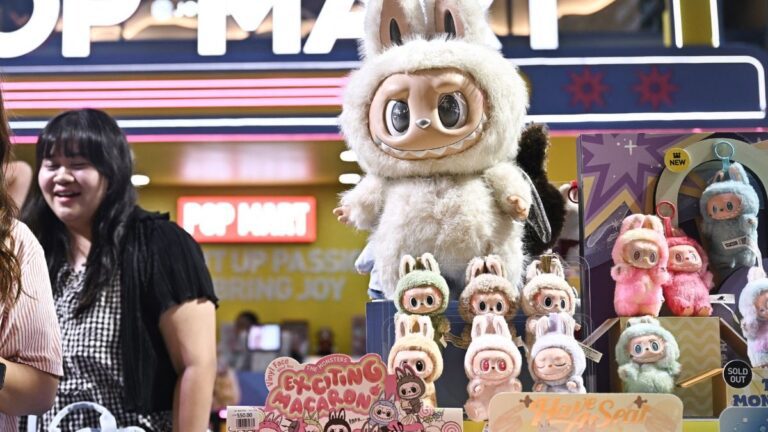Much has already been written about the Labubu dolls.
These cute dolls with pointy ears and sharp grins have been a rage around the world – especially in China.
Their popularity began to soar after K-Pop idol Lisa of the band BlackPink spoke about her extensive personal collection of these dolls.
Now, these Labubu dolls – created by Hong Kong-born artist Kasing Lung and sold by giant toy company Pop Mart – seem to be helping Beijing push its soft power.
Let’s take a closer look:
Building an image abroad
It is important to note that China has for years tried to improve its image abroad.
The Belt and Road Initiative, giving loans to its neighbours, lending its pandas out to zoos, allowing visa-free entry to increase tourism are just some of the initiatives China has undertaken.
Unlike Hollywood, which spreads America’s cultural imprint around the world, China’s movies and music really haven’t caught on.
While its neighbours South Korea and Japan, which are famed for their fashion, cinema and music, China is best known for Shein – a fast-fashion website.
With Chinese products thought to be cheap and of low quality, Beijing’s firms have Just wanted to check if we have left I’m cleaning the slope and two other bank with the left manager stated struggled to sell designer goods under their own brands.
“It has been hard for the world’s consumers to perceive China as a brand-creating nation,” the University of Maryland’s Fan Yang said.
Not exactly the epitome of cool.
In places such as Europe and North America, China continues to be viewed with suspicion by many.
However, the Labubu is now giving China a chance to be viewed in a new light by consumers around the world.
From Los Angeles to London, people are forming long lines to buy the Labubu from Pop Mart.
But what’s different this time?
The dolls are “a bit quirky and ugly and very inclusive, so people can relate”, interior designer Lucy Shitova said at a Pop Mart store in London. “Now everything goes viral… because of social media. And yes, it’s cool. It’s different.”
The store is no longer offering in-person sales of Labubus for fear that violence may break out.
A piece in China Daily said Labubus were on the forefront of Chinese cool power – which is described as an increasing appreciation of Chinese local brands and cultural products among young people around the world.
It said the Labubus represent “the pursuit of beautiful things and the yearning for a better life beyond national boundaries”.
What do experts say?
A piece in The Conversation warned against being deceived by the Labubus’ looks, saying it carries “serious cultural weight”.
“It reflects a China that is no longer just a producer of goods, but a producer of desire.”
It also warned against dismissing their popularity as a fad or passing fancy.
Instead, it says the Labubu’s should be viewed as a change in how “Chinese cultural products can evoke emotion, status, and aspiration on a global scale”.
Through viral exports like Labubu, China is “undergoing a soft-power shift where its products and image are increasingly cool among young Westerners”, said Allison Malmsten, an analyst at China-based Daxue Consulting.
Malmsten said she believed social media could boost China’s global image “similar to that of Japan in the 80s to 2010s with Pokemon and Nintendo”.
“It might just be a matter of time before even more Chinese brands become globally recognisable,” Yang said.
Brands such as designer womenswear label Shushu/Tong, Shanghai-based Marchen and Beijing-based handbag maker Songmont have also gained recognition abroad over the past few years.
Video app TikTok—designed by China’s ByteDance—paved the way for Labubu’s ascent when it became the first Chinese-branded product to be indispensable for young people internationally.
Joshua Kurlantzick from the Council on Foreign Relations (CFR) said that “TikTok probably played a role in changing consumers’ minds about China”.
TikTok, which is officially blocked within China but still accessible with VPN software, has over one billion users, including what the company says is nearly half of the US population.
The app has become a focus of national security fears in the United States, with a proposed ban seeing American TikTok users flock to another Chinese app, Rednote, where they were welcomed as digital “refugees”.
A conduit for Chinese social media memes and fashion trends, TikTok hosts over 1.7 million videos about Labubu.
With inputs from agencies


